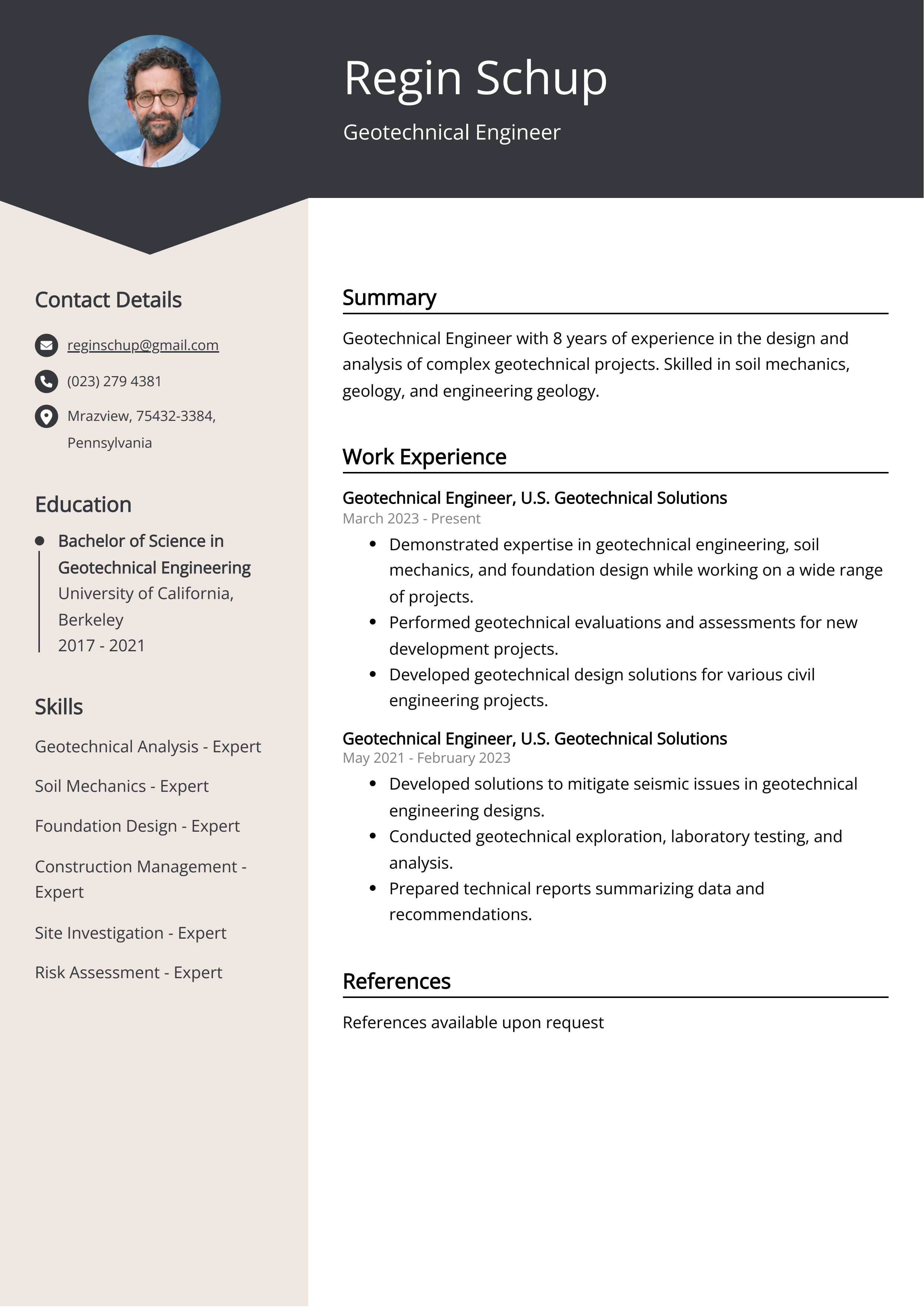Geotheta Can Be Fun For Anyone
Geotheta Can Be Fun For Anyone
Blog Article
Geotheta for Beginners
Table of ContentsExcitement About GeothetaGet This Report about GeothetaFascination About GeothetaAn Unbiased View of GeothetaThe Greatest Guide To Geotheta

They conduct site examinations, accumulate samples, perform research laboratory tests, and examine data to examine the suitability of the ground for construction tasks - Consulting Engineer. Based on their findings, geotechnical designers offer referrals for structure style, slope security, retaining frameworks, and reduction of geotechnical risks. They team up with various other professionals, such as designers, structural engineers, and building and construction groups, to make sure that geotechnical factors to consider are integrated into the general project style and execution
By assessing the behavior and properties of dirt and rock, they can recognize possible geotechnical risks such as landslides, soil settlement, or slope instability. Their know-how helps stop failings or accidents that can threaten lives and property. Below are some detailed duties and duties of a geotechnical engineer: Website Examination: Geotechnical designers conduct website investigations to gather data on subsurface conditions.
They analyze the data to comprehend the residential properties and behavior of the soil and rock, including their strength, permeability, compaction characteristics, and groundwater problems. Geotechnical Analysis and Design: Geotechnical engineers evaluate the data accumulated throughout website examinations to evaluate the stability and viability of the website for construction projects. They execute geotechnical calculations and modeling to review elements such as birthing capability, negotiation, incline stability, lateral planet stress, and groundwater flow.
How Geotheta can Save You Time, Stress, and Money.
Structure Design: Geotechnical engineers play a critical function in creating structures that can securely sustain the desired structure. They assess the dirt conditions and tons requirements to determine the suitable structure kind, such as superficial foundations (e.g., grounds), deep structures (e.g (https://www.producthunt.com/@geotheta1)., stacks), or specialized techniques like soil renovation. They take into consideration variables such as settlement limits, birthing capacity, and soil-structure communication to create optimum foundation designs
They examine building plans, monitor website activities, and perform field evaluations to validate that the style suggestions are adhered to. If unanticipated geotechnical problems emerge, they analyze the situation and provide recommendations for removal or modifications to the style. Threat Analysis and Reduction: Geotechnical engineers assess geotechnical dangers and dangers connected with the task website, such as landslides, liquefaction, or dirt disintegration.

Collaboration and Communication: Geotechnical engineers function carefully with other professionals entailed in a project, such as designers, structural designers, and building and construction groups. Reliable communication and collaboration are necessary to incorporate geotechnical considerations into the overall project layout and building and construction process. Geotechnical engineers offer technological know-how, response queries, and make certain that geotechnical needs are fulfilled.
About Geotheta
Below are some types of geotechnical engineers: Structure Designer: Structure engineers specialize in creating and examining foundations for frameworks. They evaluate the soil problems, lots demands, and site characteristics to determine one of the most ideal structure kind and layout, such as superficial foundations, deep foundations, or specialized techniques like pile structures.
They assess the factors affecting slope stability, such as dirt residential or commercial properties, groundwater problems, and incline geometry, and establish approaches to stop slope failures and minimize dangers. Quake Engineer: Earthquake designers specialize in evaluating and making structures to hold up against seismic forces. They examine the seismic risk of a website, review soil liquefaction capacity, and create seismic style standards to guarantee the safety and security and durability of frameworks throughout earthquakes.
They carry out area testing, gather examples, and assess the collected data to characterize the dirt homes, geologic developments, and groundwater problems at a site. Geotechnical Instrumentation Engineer: Geotechnical instrumentation engineers concentrate on surveillance and gauging the behavior of soil, rock, and frameworks. They mount and preserve instrumentation systems that check elements such as soil settlement, groundwater degrees, incline movements, and architectural variations to examine performance and supply early warnings of potential issues.
The Basic Principles Of Geotheta
They perform tests such as triaxial tests, loan consolidation examinations, straight shear tests, and leaks in the structure examinations to gather data for geotechnical analysis and layout. Geosynthetics Designer: Geosynthetics designers concentrate on the style and application of geosynthetic materials, such as geotextiles, geogrids, and geomembranes. They make use of these materials to enhance Geo Tech Engineering dirt stability, strengthen inclines, give drain options, and control disintegration.
They often tend to be investigatory people, which suggests they're intellectual, reflective, and analytical. They wonder, methodical, reasonable, logical, and rational. Several of them are likewise social, suggesting they're kind, charitable, cooperative, person, caring, valuable, compassionate, skillful, and friendly. Does this audio like you? Take our totally free job test to find out if geotechnical designer is just one of your top profession matches.
In the office environment, geotechnical designers use specialized software devices to do calculations, produce styles, and evaluate data. They prepare records, evaluation job requirements, interact with clients and staff member, and coordinate job activities. The office setting gives a helpful setting for research, evaluation, and partnership with various other experts included in the task.
Not known Details About Geotheta
They often check out project sites to perform site investigations, analyze geotechnical conditions, and collect data for analysis. These brows through entail traveling to different areas, often in remote or difficult terrains. Geotechnical engineers may do dirt tasting, conduct tests, and monitor building tasks to ensure that the geotechnical facets of the job are being implemented properly.
Geotechnical designers also function in specialized geotechnical laboratories. Geotechnical laboratory engineers function thoroughly in these settings, taking care of screening devices, running instruments, and tape-recording information.
Report this page